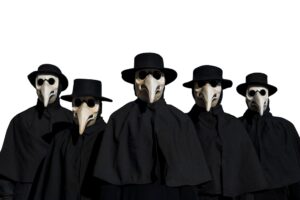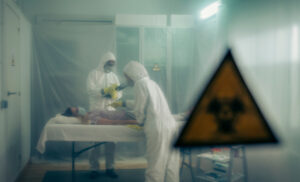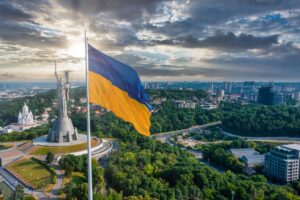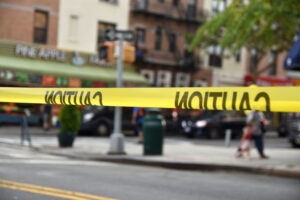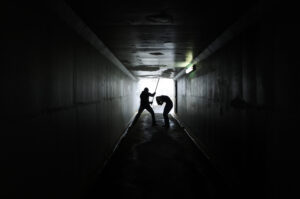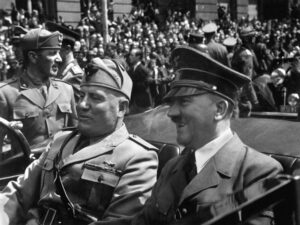The last 32 UEFA cup match between Spartak Moscow and Haarlem was hardly one to capture the imagination of the football-loving public. Though Haarlem had enjoyed their most successful season to date after finishing fourth in the Dutch league, they had been forced to sell their top player, Ruud Gullit. Spartak themselves could not boast any great talent either and only around 100 Dutch fans bothered to make the trip to Moscow.
The Moscow public was also decidedly lukewarm about the fixture and few bought tickets to brave the cold early winter air. Faced with such a meagre attendance, the authorities made the fateful decision to close off most of the ground and hem the 15,000-strong crowd into one stand. The match did little to warm the hands of the assembled audience, save for a Spartak goal in the 17th minute from their star striker Gess. It was a lead that they held onto until the game went into injury time. Satisfied with their team’s work and keen to get back to the warmth of their homes, the crowd began to leave. Just seconds before the final whistle was due to be blown, Sergei Shvetsov doubled the home side’s lead and put the game beyond doubt.
Hearing a roar, many in the departing crowd turned round and headed back to investigate its cause. The military police, who routinely managed sports events, were concerned only with blocking the returning fans, rather than opening more gates to ease a growing bottleneck. With underfoot conditions becoming ever icier, many began to slip and slide and this sparked a stampede. Hundreds of people lost their footing and hundreds more had no escape other than to clamber over the fallen. Scores were trampled to death and many more suffered severe injuries.
When was the Lenin Stadium Disaster: October 20 1982
Where was the Lenin Stadium Disaster: Lenin Stadium (re-named Luzhniki Stadium), Moscow (formerly USSR)
What was the Lenin Stadium Disaster death toll: Official records put the death toll at 67 but the true figure may have run into hundreds.
You should know: Such was the secrecy in the former Soviet Union that, in spite of the presence of several journalists in the stadium, little was reported in the press. A local Moscow newspaper carried a small article stating merely that there had been an incident at the game and that some people had been injured. The Dutch team did not learn of the tragedy until many years later, and on the 25th anniversary of the disaster the original teams played a benefit match in aid of the victims’ families.



